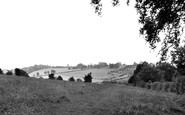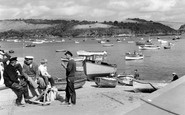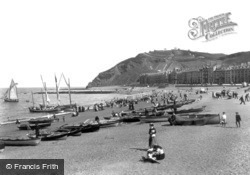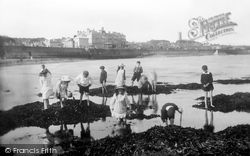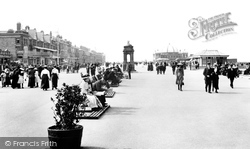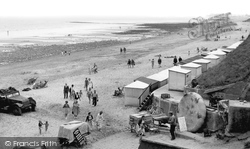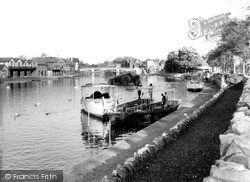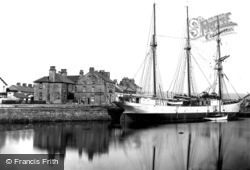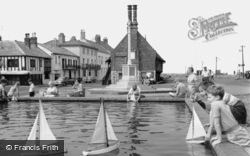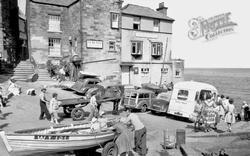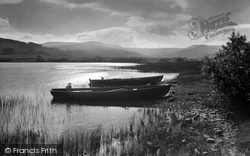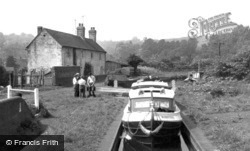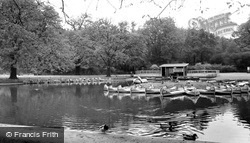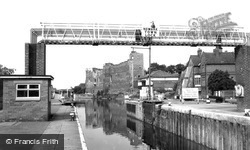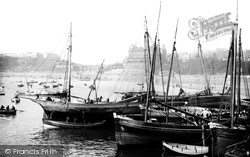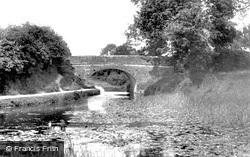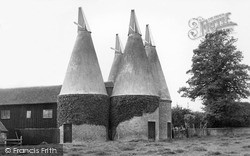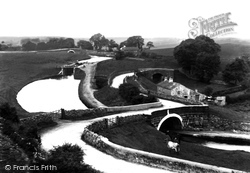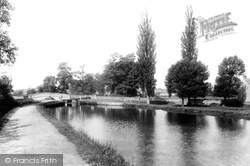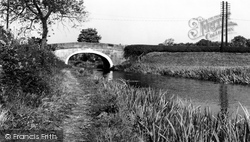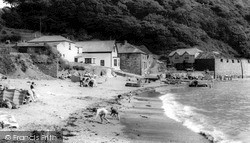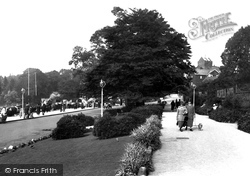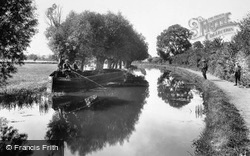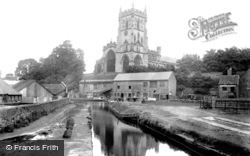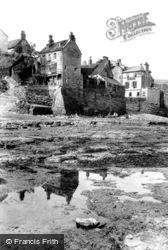Merry Christmas & Happy New Year!
Christmas Deliveries: If you placed an order on or before midday on Friday 19th December for Christmas delivery it was despatched before the Royal Mail or Parcel Force deadline and therefore should be received in time for Christmas. Orders placed after midday on Friday 19th December will be delivered in the New Year.
Please Note: Our offices and factory are now closed until Monday 5th January when we will be pleased to deal with any queries that have arisen during the holiday period.
During the holiday our Gift Cards may still be ordered for any last minute orders and will be sent automatically by email direct to your recipient - see here: Gift Cards
Places
14 places found.
Those places high-lighted have photos. All locations may have maps, books and memories.
- Coates, Lancashire
- Coate, Wiltshire (near Swindon)
- Coates, Lincolnshire
- Coat, Somerset
- Coates, Gloucestershire
- Coates, Nottinghamshire
- Coates, Cambridgeshire
- Coates, Sussex
- Coates, Lothian (near Penicuik)
- Coate, Wiltshire (near Devizes)
- Great Coates, Humberside
- Salt Coates, Cumbria
- Little Coates, Humberside
- North Coates Airfield, Lincolnshire
Photos
49 photos found. Showing results 1,201 to 49.
Maps
88 maps found.
Books
1 books found. Showing results 1,441 to 1.
Memories
1,490 memories found. Showing results 601 to 610.
The Day The Sea Wall Broke
I remember walking to school one morning in a 'crocodile' with the girls from the convent in Dovercourt. We were stopped at the Police Station and told we could go no further. I could see the water lapping not far ...Read more
A memory of Dovercourt in 1953 by
Another Coulsdon Playground
I lived in Tollers Lane, Old Coulsdon 1946-59 before moving to Coulsdon Rise. Farthing Downs was one of our favourite play spaces. Walking down the rough lane opposite our house to Tollers Farm, on down into Happy ...Read more
A memory of Coulsdon in 1952 by
The Good Times
I lived in Westgate then moved to Wicklow Street. I remember the floods on Lincoln Street in 1947, we had to go in little rowing boats. I was in Mrs Evans's class at Percy Street School. After Goose Fair we had on on Billy ...Read more
A memory of Old Basford by
River Gardens.
I have so many happy memories of Purley on Thames. My older sister lived at No 1 River Gardens in the latter part of the 1960s until the middle of the 1970s. As kids, my brother and I spent many, many happy days playing in ...Read more
A memory of Purley on Thames in 1969 by
Lisa
Lisa, papers at Ealing local history library, Ealing Broadway...yes, all mermories...music shop, Oldfield, there to 180 at least litten pub went...all little greengrocer,stands,,,by stanhope..sainsbury was there for new one open day ...Read more
A memory of Greenford by
My Childhood In Ireby
I was born in Ireby in 1955. I had two sisters and a brother, Linda Val and Paul. My mum was born in Ireby and her dad John Coates (my grandad) lived around the corner in the cottages in the middle of Ireby. I went ...Read more
A memory of Ireby in 1966 by
Aerco
Aerco was started by my grandfather, Thomas Ricketts after the war. He was an engineer and Aerco sold and repaired early radios and the first TVs, hence the name Addlestone Electrical Radio Company! I believe there were two locations for ...Read more
A memory of Addlestone in 1949 by
White Strand
Between 1060 and 1962 I worked with Les Stone, hiring his boats off White Strand. I think Les could be in the bottom corner of the photo with the hat on. I could be the young lad near the water's edge. What memories. Great two years for me.
A memory of Salcombe by
Growing Up In Tottenham Risley Ave Area
Tottenham?? Oh boy, I was born in Risley Avenue, lived there till 8 years old then moved to De Quincy Road, Tottenham, this house was genuinely haunted and we had a lot of bad health and experiences when ...Read more
A memory of Tottenham in 1950 by
The Recreation Ground
The recreation ground, we use to call it the rec, it used to have a rocking boat, I caught my knee on the underneath bar, I still have the scar. I was married in 1967 in All Saints Church, Belvedere. We used to get the red ...Read more
A memory of Belvedere in 1955 by
Captions
1,649 captions found. Showing results 1,441 to 1,464.
many more visitors came; a variety of activities was arranged for them, including bathing from the bathing machines in the middle of the picture, taking trips around the bay in the rowing or sailing boats
Penzance is frequently enlivened by the departure of the fleet of the fishing-boats for which the district is famed.
West of the pier a marine lake for pleasure boating was formed in 1895; it had nearly 40 acres of water and a 3-acre island.
The military vehicle is used to pull boats belonging to the fishermen to a safe and easier spot to unload their catch.
In the foreground are several pleasure boats - the 'Monarch' and the 'Angler'. Sir Christopher Wren's old home, now a hotel, stands on the right bank, near the bridge.
We see behind the dock a busy little port, though it was mostly used by coasters and Irish cargo boats.
Model sailing boats ply back and forth across the pool. In the background is the Moot Hall of c1540; in front is the war memorial, now surrounded by a garden.
In the foreground, Mum and Dad watch over their children who are sitting in a small fishing boat.
In this peaceful scene we see two boats tied up waiting for visitors in the shallows of Semer Water.
Though it passes through an industrial landscape, this canal has many quiet rural stretches where the narrow boats chug along under a dense canopy of green.
The kiosk has now been replaced by the 1980s Boat House café.
This view is from the Town Lock on the River Trent, which was built in 1951 to accommodate 250-ton boats; its smaller and narrower predecessor lies on the far right.
Here we see boats from a variety of ports, including Hull and Penzance.
In the event, the main line from Taunton was built as a tub boat canal with a very short life, and an 11-mile stretch from Loudwells to Tiverton was built as a barge canal.
Travellers still come by boat and tie up at the riverside here.
The revival in pleasure boats on the canals has brought back a lot of life to the area.
The lock was the last before the narrow boats reached the canal basin at Walton Street, where a cargo crane is preserved.
In the 18th century this waterway was busy transporting coal, and possibly large cheeses too, for Tom Rowe the Lancashire cheese factor lived in Bilsborrow.
A lifeboat station was established at Polkerris in 1859, when the first boat was given by the Rashleighs of Menabilly.
We can see the back of the boat station, with 'cushion huts' peeping out behind the strolling crowds, whilst to the right 'Schneider's gate' is flanked by the bold 'Belsfield Hotel' sign.
When the Oxford Canal finally reached Oxford in 1790, the city bells were rung to celebrate the arrival of the first barges loaded with coal from Coventry.
The warehouse beneath is owned by the London Midland & Scottish Railway Company; one of the boats is mooored close by.
Though it passes through an industrial landscape, this canal has many quiet rural stretches where the narrow boats chug along under a dense canopy of green.
The connection with the legend of Robin Hood is obscure, but one story is that Robin came here to hire boats in order to escape from England.
Places (14)
Photos (49)
Memories (1490)
Books (1)
Maps (88)

